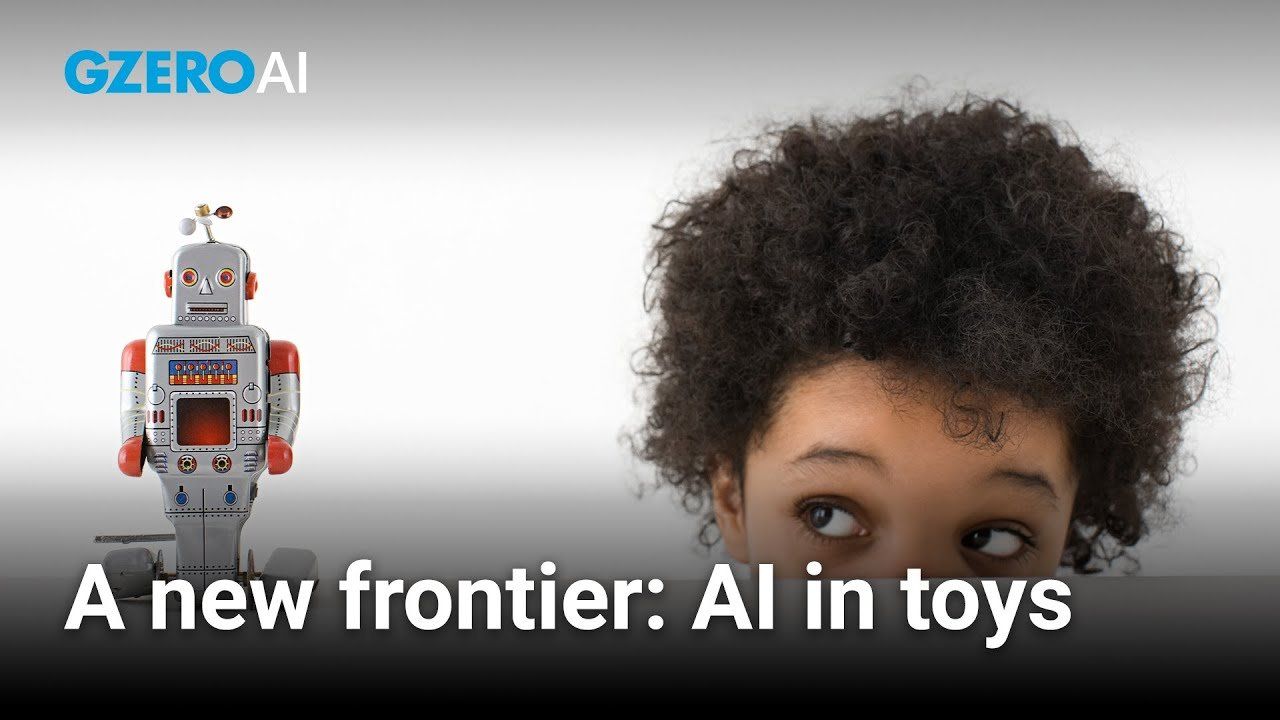GZERO AI Video
New AI toys spark privacy concerns for kids

Innovative AI toys spark privacy concerns for kids | GZERO AI

Taylor Owen, professor at the Max Bell School of Public Policy at McGill University and director of its Centre for Media, Technology & Democracy, looks at a new phenomenon in the AI industry: interactive toys powered by AI. However, its interactivity function comes with a host of privacy concerns. According to Owen, it doesn't end there.
So, it's that time of year where I start thinking, admittedly far too late, about my holiday shopping. And because I have a ten-year-old child, this means that I am seeing a lot of ads for new kids’ toys. Kids have had interactive toys for decades. Remember Tickle Me Elmo?
But now these interactive toys are being powered by AI. For example, for $1500, you can buy your kid a Moxie robot. My name is Moxie. I am a new robot. What is your name? Moxie is sort of like a robotic best friend. When your kid talks to it, Moxie records those conversations and then uses technology powered by OpenAI to analyze those interactions and react back.
Embodied, the company that makes Moxie, says that this helps kids regulate their emotions, provides them with companionship, and boost their self-esteem. All of which sounds great, but toys like this should also give us pause. Let me explain. A toy like this comes with a whole host of privacy concerns. Moxie records video and audio of your child and then analyzes that data to create facial expression and user image data.
Now they say they don't store the audio and video recordings, but they do keep the metadata about your child's facial expressions and how they're interacting with the toy. Embodied says it's ultimately parents’ responsibility to ensure that their child isn't giving out personal data. But I don't know., that seems unlikely for a toy that's designed to be your child's digital best friend.
These types of privacy concerns, of course, aren't new. Home assistants like Amazon Alexa and other smart appliances also record and mine your data. And big tech companies aren't likely to move away from this kind of practice, as data collection is essential to their market power. It's pretty clear we're extending this collection practice into the lives of our children.
While privacy concerns with toys like these are well-established, there's another issue that I think requires some thought. How will toys like these affect childhood development? There's a chance these toys could become a powerful tool in helping kids learn and grow. Embodied claims that 71% of the kids that use Moxie saw improved social skills. But this also represents a pretty radical new frontier in childhood development.
What happens when kids are being socialized with robots instead of with other kids? It's often said that AI is going to transform our society, but this may not be a binary event. Sometimes the effect of AI is going to creep into our lives slowly. Kids toys, slowly but surely becoming agents, may be one way this happens.
I'm Taylor Owen and thanks for watching.
In this Quick Take, Ian Bremmer addresses the killing of Alex Pretti at a protest in Minneapolis, calling it “a tipping point” in America’s increasingly volatile politics.
Who decides the boundaries for artificial intelligence, and how do governments ensure public trust? Speaking at the 2026 World Economic Forum in Davos, Arancha González Laya, Dean of the Paris School of International Affairs and former Foreign Minister of Spain, emphasized the importance of clear regulations to maintain trust in technology.
Will AI change the balance of power in the world? At the 2026 World Economic Forum in Davos, Ian Bremmer addresses how artificial intelligence could redefine global politics, human behavior, and societal stability.
Ian Bremmer sits down with Finland’s President Alexander Stubb and the IMF’s Kristalina Georgieva on the sidelines of the World Economic Forum to discuss President Trump’s Greenland threats, the state of the global economy, and the future of the transatlantic relationship.